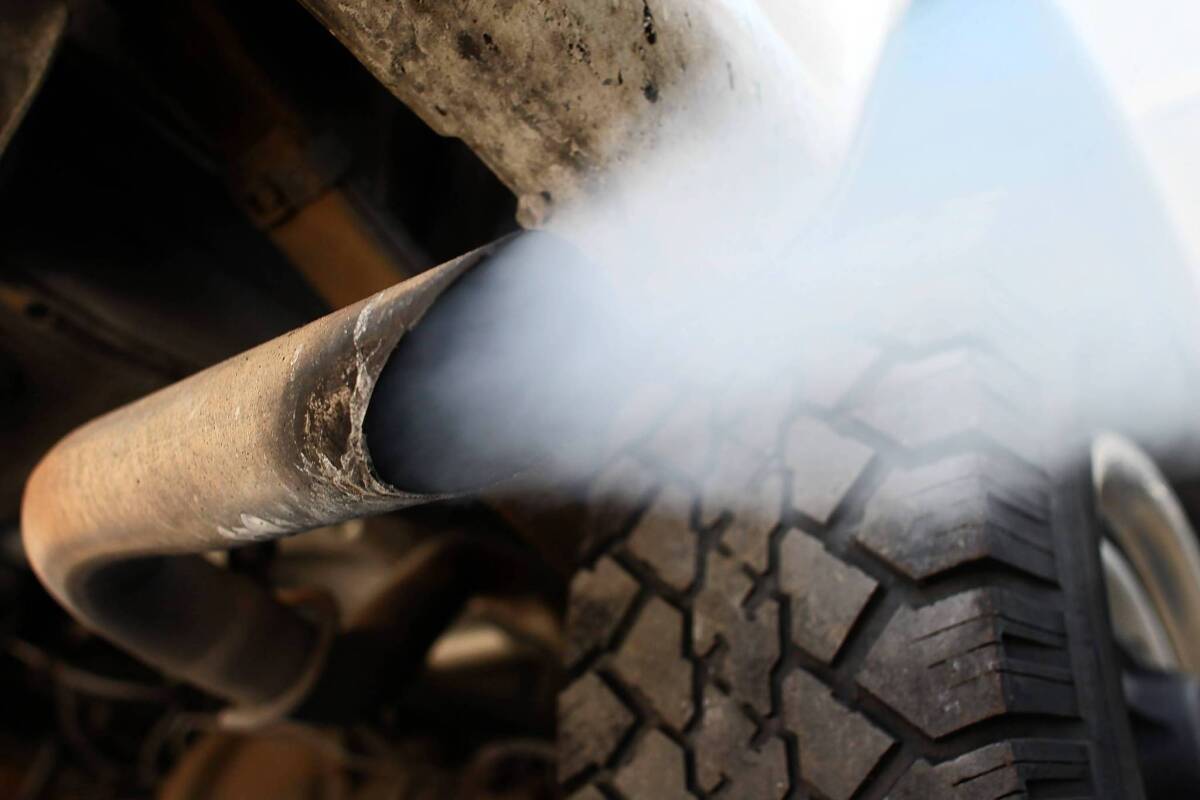Letters: Try driving smarter

- Share via
Re “A tax everyone can love,” Opinion, April 21
If folks are leery of paying taxes to cover the actual costs of burning oil, there are two things they can do to mitigate the effects of the carbon tax that Doyle McManus discusses in his column.
To start, our national fleet of vehicles is grossly inefficient. In 2012, the average fuel economy for new cars sold in the U.S. was about 24 miles per gallon. This problem is compounded by inefficient driving — hard accelerations, speeding and accelerating toward a stop rather than coasting. As much as 30% of fuel is wasted as a result.
A carbon tax would be paid mostly by those who insisted on driving inefficient vehicles or who drove inefficiently. Smart drivers would migrate to efficient vehicles and would learn to drive them efficiently. Those drivers would be less affected by a tax increase.
Paul Scott
Santa Monica
A lot of people think the revenue-neutral carbon tax would be a tax on citizens; of course, we don’t want more of that. But it’s really a fee that the obscenely profitable polluters would have to pay for the carbon dioxide they release into our atmosphere when their fuels are burned.
The idea is that all of that revenue would come back to us as a “dividend,” so some call this a “fee and dividend” rather than a tax. It would help mitigate the increased costs to consumers of fossil fuel-based energy while our country switches to abundant alternative energies.
Passing this fee-and-dividend program is the right step toward a livable, sustainable future.
Lynne Girdlestone
Newhall
A carbon tax could be a great way to combat climate change. But so many versions have the revenue being rebated to the public one way or another.
If you want to use the tax to change our carbon-consuming behavior, what incentive will there be when the money comes back and you can spend it on more gasoline or other energy sources that release carbon dioxide? Such a tax would work only if the revenue is used to help fund replacement options for our energy needs.
None of the revenue should be used to reduce the deficit, which would addict us to a money stream tied to bad behavior. If the tax is effective, eventually our carbon-free economy would make the revenue disappear.
Bill Seibel
Glendora
ALSO:
Letters: Don’t forget the Texas blast
Letters: Richie Havens and Earth Day
Letters: Taking stock of Yelp’s reviews
More to Read
A cure for the common opinion
Get thought-provoking perspectives with our weekly newsletter.
You may occasionally receive promotional content from the Los Angeles Times.






